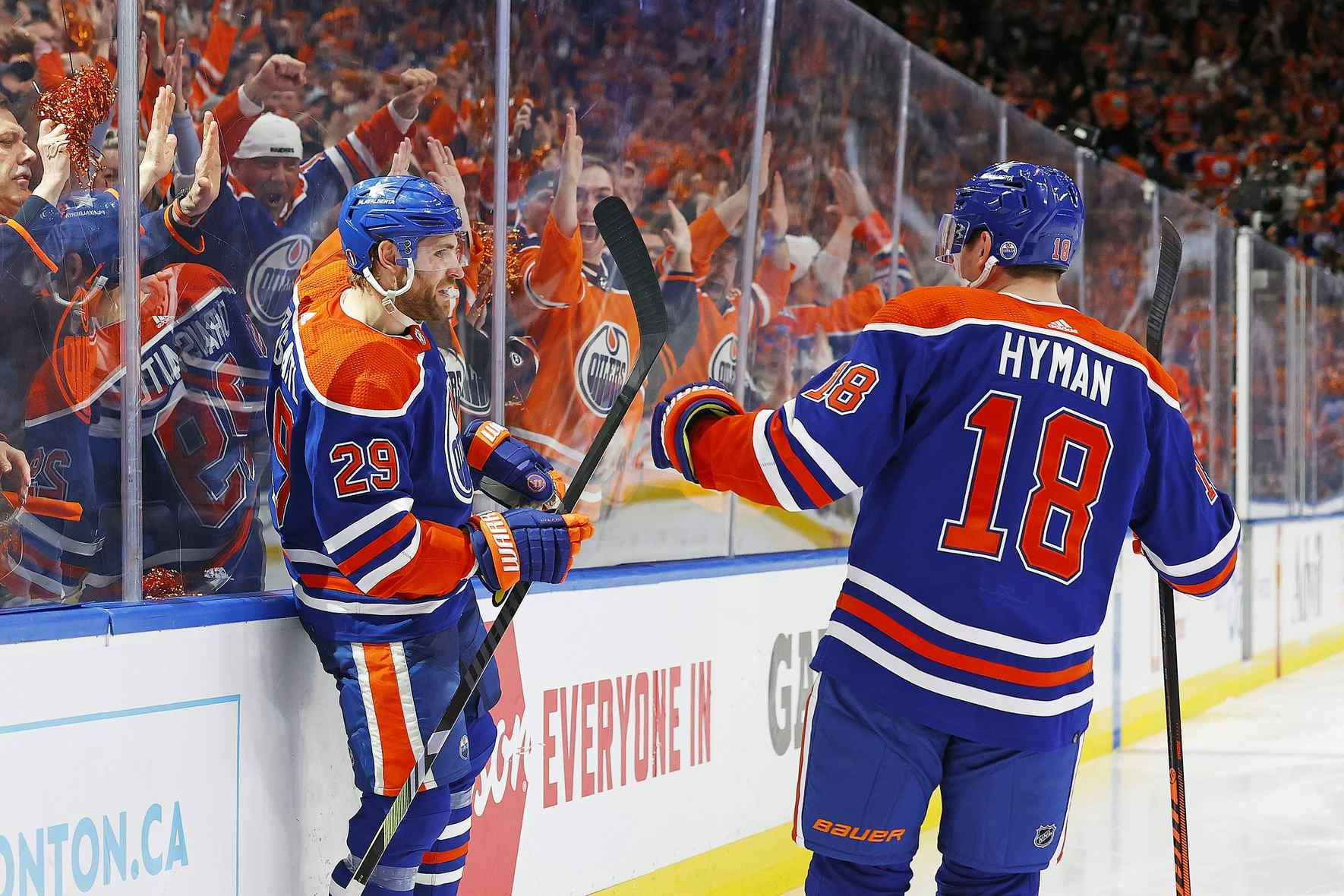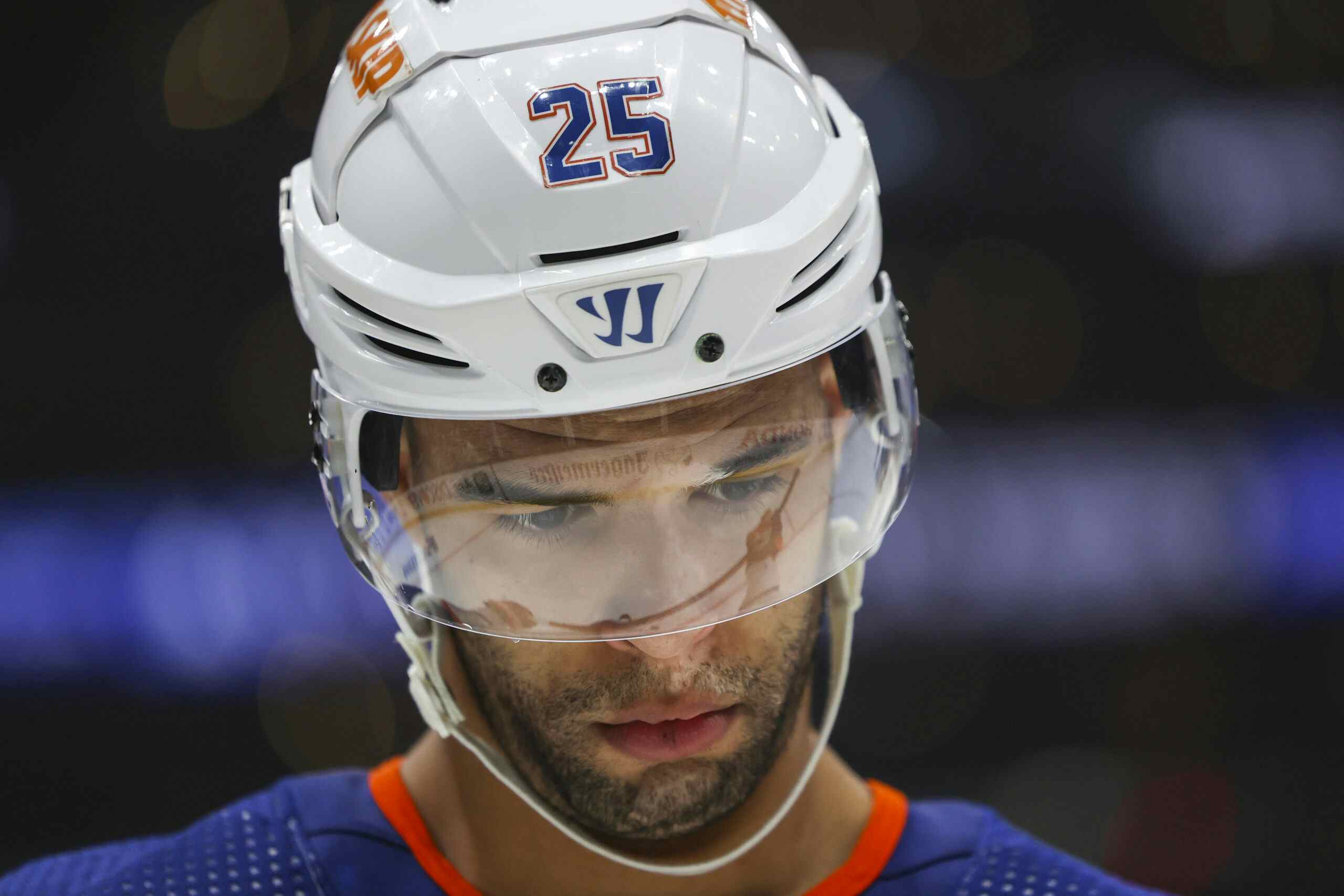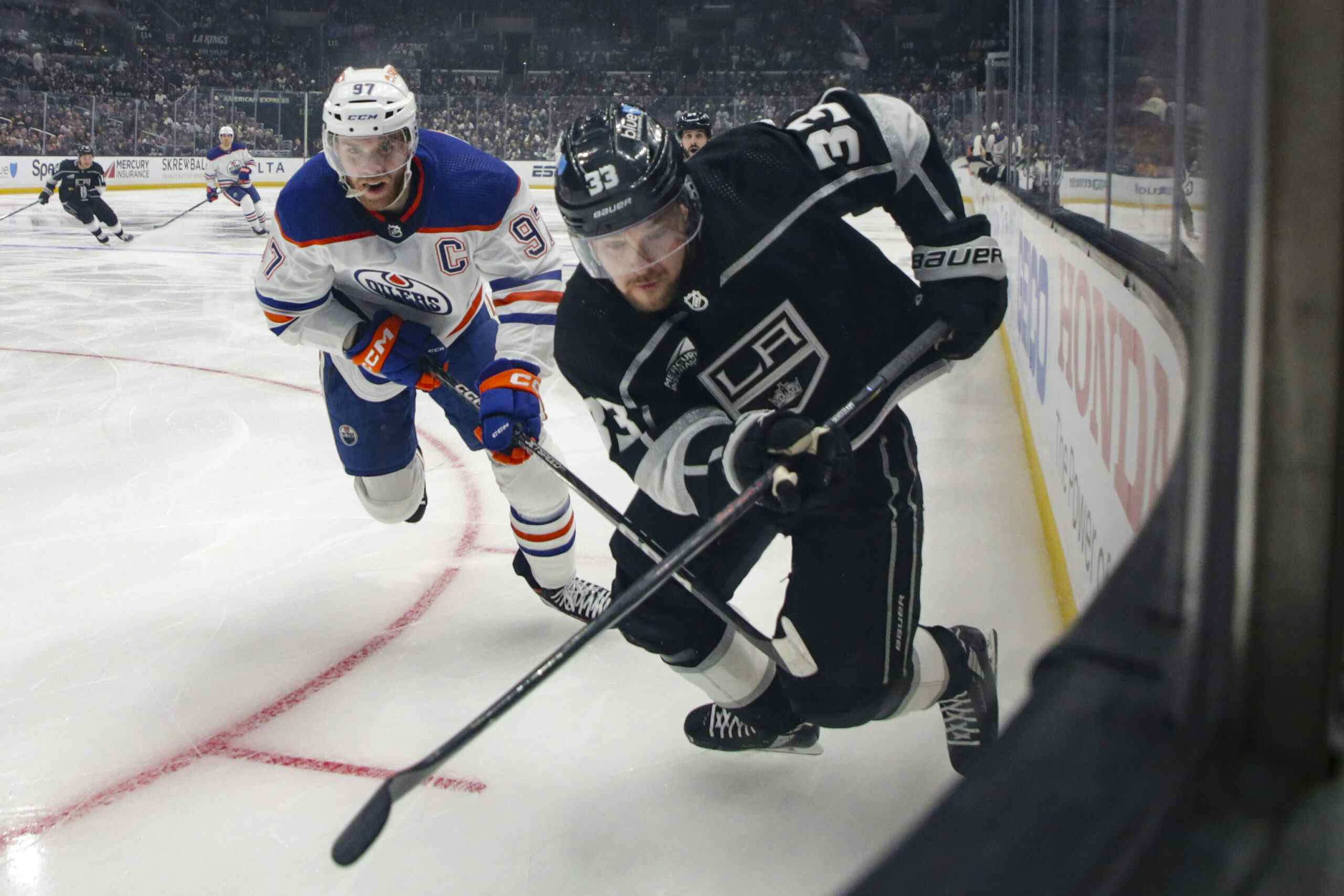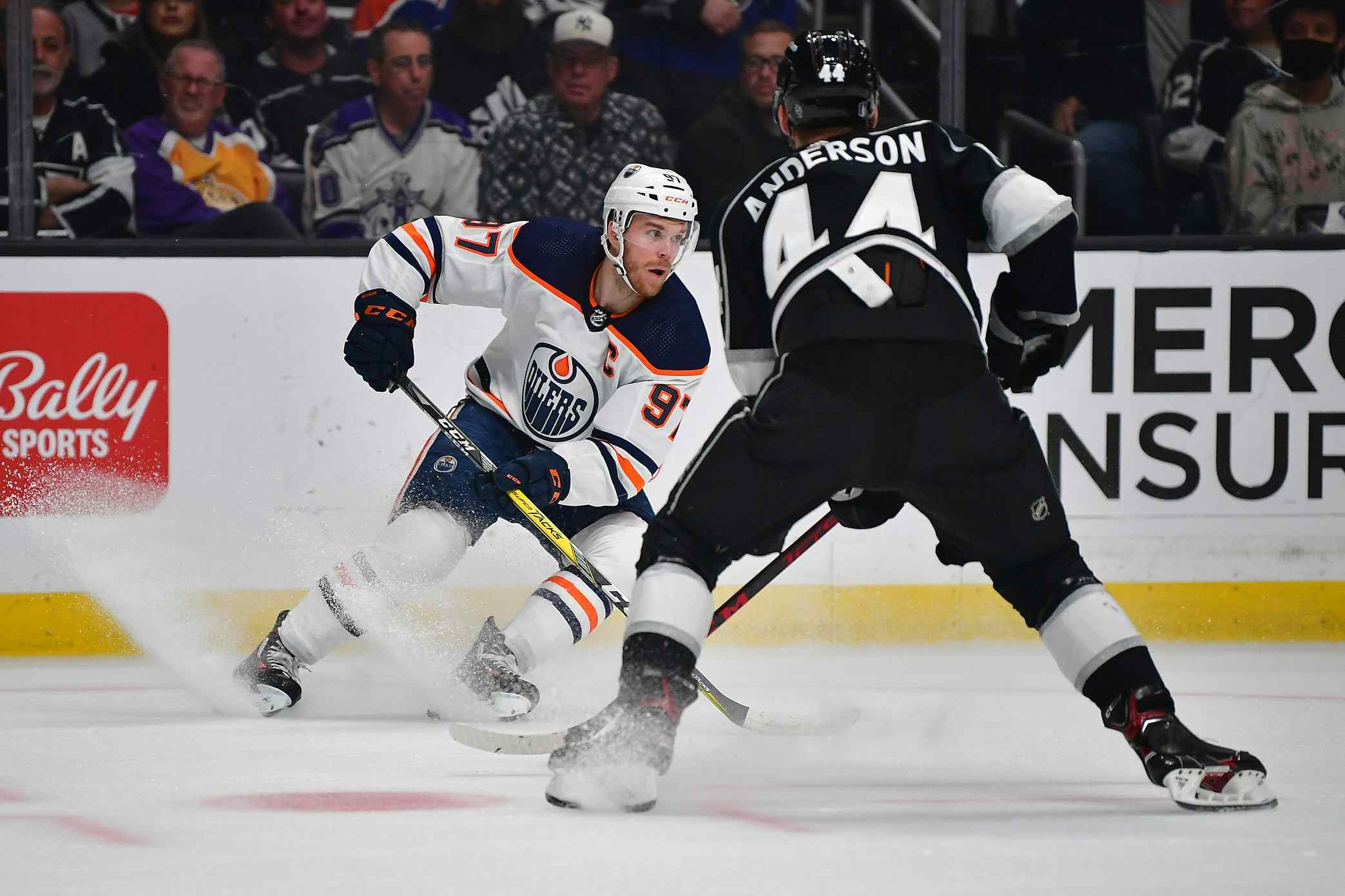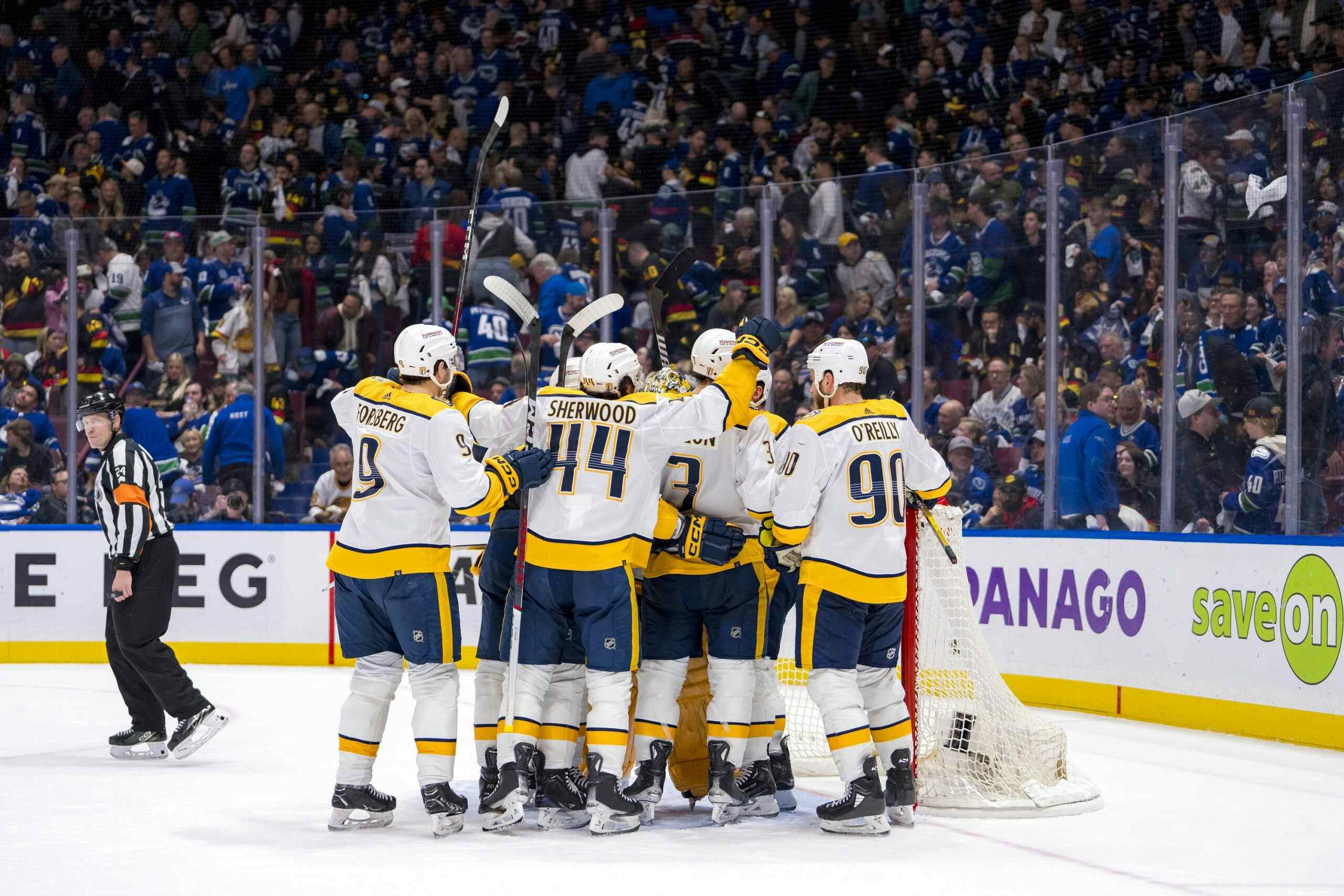DRAFT DAY: MACGREGOR SHARES HIS THOUGHTS
By Jason Gregor
10 years ago
After months of speculation and hype the 2013 draft is finally here. For the past two months, fans and media been debating what would be the first "Bold" move made by Craig MacTavish. I suspect today we will finally be able to discuss and debate a MacTavish trade, and one man who will be heavily involved in the trade discussion will be head scout Stu MacGregor.
If the Oilers elect to move down from the #7 slot, MacTavish will lean heavily on MacGregor’s opinion of players slotted to go later in the draft.
If the Oilers elect to move down from the #7 slot, MacTavish will lean heavily on MacGregor’s opinion of players slotted to go later in the draft.
I spoke to Stu MacGregor before the draft on my show to get his thoughts on this year’s draft and how the Oilers approach seems much different than the past three years.
Gregor: How different does it make this final week for you, since you aren’t picking first and you don’t know who will be available at #7?
MacGregor: I think you just have to be more prepared, that’s all; Waiting for a lot of scenarios and possibilities- being that we trade the pick, trade down, trade back, trade for help for our team, or just make the pick, and maybe some picks made in front of you that are unexpected and you end up getting a player that you had higher ranked on your list. So you just have to be prepared for a few more scenarios. MacT has got us working hard and being ready and he’s been explaining to us that there could be a lot of things happen at the draft, so we’re trying to be prepared.
Gregor: Is there a noticeable different approach or direction from MacTavish, compared to Steve Tambellini, as far as how they want you approach the draft?
MacGregor: Well with Mac, skill is really important to him. That’s something that he’s looked for. Obviously the other intangibles of character, hard work, quality of people and players who are passionate to play the game are important, but he really has a high regard for skill.
Gregor: Skilled players with size are something the Oilers need. I spoke to David Conte (Devils head scout) and he was mentioning how he doesn’t necessarily think this draft will have the high end talent like 2003, but maybe more consistent players deeper into the draft. Is that the case?
MacGregor: That’s the hardest thing to find, as you just said- big players with skill. David is exactly right in my opinion and he has a great track record for doing what he’s been doing with the New Jersey Devils. I agree with him. I don’t know if there are a lot of big players with skill later in the draft, but there are a lot of good hockey players. I think this draft has some depth to it. There’s certainly some high end draft early and I think whoever fits in the top ten to fourteen or fifteen will get a very, very good player. Then it moves back a little bit, but I don’t think that you’re getting players that aren’t real good NHLers, it’s just players that may take a little bit longer to develop or may not be quite as skill that are going in the top twelve or fifteen.
Gregor: Historically Swedish offensive players seem to take longer to develop. Do you take that into account when you look at a guy like Lindholm, compared to a guy like Monahan, where Monahan might be better earlier and it might take longer for Lindholm?
MacGregor: Well, the one thing is that Lindholm has as good of numbers as any player coming out of that Swedish Elite League. He’s already played one full season and part of another, so he’s already tested against men. He’s shown that already. That’s not to say Sean Monahan hasn’t been tested, because he has and has proven that he can put up points with a good team and a weaker time like the team he played with in Ottawa this year. I don’t think that it’s a real problem (Swedish players developing later), but Lindholm is a player that has done extraordinarily well already against men. So I think he might be just fine.
Gregor: As you prepare for this draft, do you still plan on doing a lot of interviews in the days leading up the draft like in past years?
MacGregor: We’ve done a lot of interviews already, probably off the charts in interviews this year. Now we will do follow ups from our staff, our area scouts, our crossover scouts, myself. We got a few players into Edmonton already for Craig and Kevin to meet with, get to know a little bit. So we’ve done an awful lot of that. I don’t think we’ll be doing too many in New York. There always a question two that comes up, so we might need to track down a player at the last minute, there could be a couple of those. At this point, there’s really not a lot of those scheduled. Mostly we’ll just be in discussions and trying to get prepared for different scenarios.
Gregor: You mentioned that MacTavish told you to prepare for a lot of scenarios. When it comes to trading up, it is obvious who are the players ranked in the top-four, but if you consider trading down, I’m guessing that’s where you have to do a lot more homework. Do you have to prepare a list of who you think will be available at different parts of the first round?
MacGregor: Absolutely. We have to be prepared that if he says we’ll trade back to seventeen, well who are the players? Who are the grouping of players that we feel will get at the 17th spot, or if we traded back to twenty-five. He would want to know what players we felt are there, and what their future potential is. If we move back to ten, what is the grouping of players that we would be falling back to? He may have already chosen players he likes within those ranges, and then he has an idea, “Okay, it’s of value for use to do that.”
IS THERE A DROP OFF?

Gregor: You said earlier you think after number fourteen there is a little bit of a fall off, could you elaborate on that a bit? Are we talking guys who may talk longer to develop, guys on the off chance who are third line guys, or low end second line guys? How do you determine how significant that drop off is?
MacGregor: Well a drop off is that how soon they would be able to make their impact or debut with your team. Do they have to complete their junior or college careers? Would they have to play through their entry level contracts before they make their debut in the NHL? Those kinds of things. They’re going to be good players who are going to contribute; it’s just going to take a bit longer.
Gregor: That has to be the hardest thing to determine. Can you give us some general things that you feel force guys to take longer with their development?
MacGregor: A lot of it is physical development and then obviously maturity as they develop physically and mentally and their commitment to the game. Some players haven’t put in as much of a commitment to the game yet, but they’re going to as they realize what their potential is or what the opportunities in front of them are.
Some of those players become a little bit of a diamond in the rough. I saw in your written interview the other day with David Conte, he said, “It’s not an exact science,” and that’s very accurate. Some players take a little bit longer to develop, and it is difficult to know accurately how long it will take them. Some still end up being great players, it just takes them a little bit more time. It takes them time to physically get strong enough, mentally be prepared to put in the commitment and being able to handle the rigors of the game in the National Hockey League.
Gregor: As scouts would you sit down with Conte over a beer some time and talk strategy and players or his that frowned upon?
MacGregor: Well we’re all competitive. David’s a good man, but he wouldn’t sit down and have a beer, he’d have a glass of white wine. He’s a guy that, he’s not going to give you his secret, but he’s willing to discuss players and talk about things in general. He’s a guy that helped grow the game a lot in his own way and obviously you have to look at his track record.
There are people in this game that you have to listen to, sometimes you just have to do sit down and listen. That’s the best thing you can do. Watching and listening helps you gain experience. David’s a good man; I have a good relationship with him. Not that he’s going to give me his list, but he’ll tell me I did a good job on something or other and I’ll do the same thing. A lot of times, David is willing to share some things, but he’s not going to give me all his secrets.
KEEP DEVELOPING AS A SCOUT…

Gregor: How did you develop and become a better scout? How does a scout develop his repertoire?
MacGregor: Well my repertoire goes all the way back through junior. I guess it just grows through experience, grows through knowledge, grows through learning from other, watching others, trying to gather that information. Analytics have started to become a part of the process for a lot of teams, gathering some information. To grow as a group, we do a self-analysis of ourselves and what we’ve done. Results don’t always show up in the first few years.
We’ll do a break down of a draft, going back three, four, five years. Five years is generally a pretty good rule of thumb. They’re usually on their way to contribute to the National Hockey League. We will discuss many factors. Okay, we were right here, we were wrong there. What did we see at the time for that particular player and why is he a success, when we didn’t think he was? Or that player we picked, why is he not a success? What were we thinking about, what was it we thought he would bring us? You just try to gather that and put that in your memory bank, make note of it, put your information together as a group. We like to de-brief the drafts. We’ll do one, usually one year after the draft, but then again at three years and again at five years.
Gregor: When you would draft at twenty-one, twenty-two, twenty-three, do your expectations of that player change a lot, compared to a even a guy at the number twelve, thirteen or fourteen slot?
MacGregor: I think any time a you pick a little bit earlier in the draft, your expectations are going to be a little bit higher. You hope that the return on investment is a little bit more. So I think yes, it does change for you later in the draft and your expectations might not be as high. You feel that the time of development or time of impact on your organization would possibly be a little bit longer.
QUICK HITS
- I still believe a trade involving Brayden Coburn and the #7 pick, would have to include the Oilers getting the Flyers #11. I don’t see Coburn being worth the #7 straight up, and if I was a betting I’d say Oilers keep #7 and the trades they make will involve roster players and their 2nd round picks.
- Kris Letang got his money. He signed an 8-year, $58 million deal with the Penguins today. In May I wrote that the Pens would keep Letang, which could make Paul Martin expendable next summer. If he is available, I’d make a strong pitch to acquire him. Letang’s extension doesn’t kick in until next year, and the cap will likely go up, so his raise won’t hurt the Penguins as much as some think.
- It is funny how suddenly the Canucks realize that trading Corey Schneider might be their best bet. We’ve been saying that across the Nation Network for months. I’m still not sold that Schneider is as great as some suggest, but he’d get a better return than Roberto Luongo, mainly due to his contract. I wouldn’t over pay to get Schneider in Edmonton. It is true the Oilers need another goalie, but they need a top-three defender and better forwards more than they need a goalie. The Oilers have proven their forwards and defence aren’t good enough, while Dubnyk has only had one year as a starter. He had some great games, and some bad games, but he showed he was capable of playing very good. I don’t see goaltending as the major concern on the Oilers at this point.
- If you are looking to hang out with your fellow Oiler fans, the Oilersnation draft party is today at the Pint downtown. Stop in and yell at the TV with your fellow fans. It will be a great bonding moment for Oiler fans.
RECENTLY BY JASON GREGOR
- CALM BEFORE THE STORM
- ONE-ON-ONE WITH MACTAVISH
- WHAT THE CLUTTERBUCK
- DRAFT WEEK: LET’S MAKE A DEAL
- RUMOUR MILL IS GETTING HOT
- THE MADNESS BEGINS…
- WHAT IF…DISPERSAL DRAFT
- EAKINS: I WANT TEAMS TO FEAR US
Recent articles from Jason Gregor

